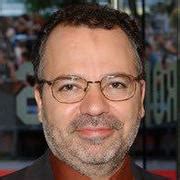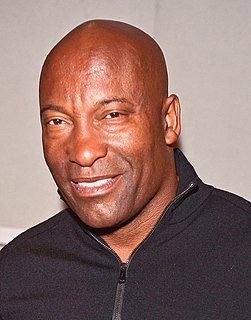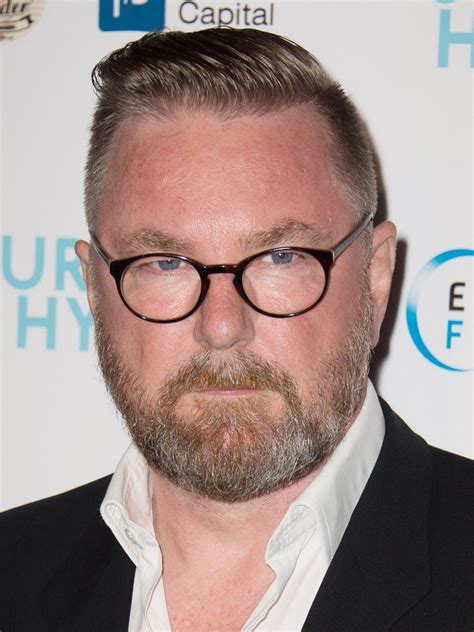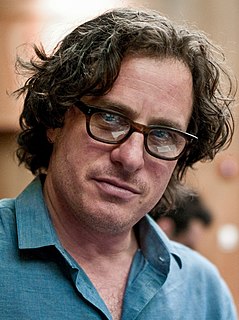Цитата Джонатана Мостоу
Мы не собирались полемизировать о жизни в эпоху цифровых технологий, я могу только эмоционально реагировать на сюжетные идеи. Вы слышите идею и говорите: «Это круто. Я могу потратить на это несколько лет своей жизни». Как режиссер, вы подходите к этому так: «Хорошо. Они собираются дать вам все эти деньги, чтобы сделать этот фильм. Это как электропоезд, с которым можно играть».
Связанные цитаты
Когда вы становитесь старше, когда вы испытываете и проходите через разные вещи, вы понимаете, что должны установить границы. Вы должны для вашей жизни. Вы должны сказать, что это нормально, а это не нормально. Это то, чем я зарабатываю на жизнь, и это моя жизнь. Это единственное, что я получаю, и поэтому я должен установить границы.
Вот правда о том, как рассказывать истории из своей жизни. Это будет звучать как отличная идея, и вы будете в восторге от нее, а затем, когда придет время делать работу, вы не захотите ее делать. Так и с написанием книг, так и с жизнью. Людям нравится проживать великие истории, но мало кто любит работу, которая требуется для их воплощения. Но радость стоит боли.
Долгое время я думал, что когда ты делаешь бокс-сет, ты сдаешься; вы говорите: «Хорошо, у меня ничего не осталось». Но теперь я послушал кое-что из старого материала, которого не слышал лет 20-40, свежими ушами. Это как: «О да, я вижу, где люди могут захотеть услышать некоторые вещи, которые не попали на пластинки».
Мне нравится идея делать небольшой фильм каждую неделю. Когда снимаешь фильм, не знаешь, когда он выйдет. Через год об этом забываешь. Я забываю истории, которые происходили на съемочной площадке. Я забыл, с кем я работал. Я забываю свои реплики, имена своих персонажей. Это так свежо. Мы делаем это, и это по телевизору. Он больше похож на живое, дышащее существо.
Самая первая мысль о создании фильма у меня возникла... Моя первая мысль о том, чтобы стать режиссером, была, когда мне было шестнадцать, и я захотел снять фильм о викингах. И я хотел сделать это на древнескандинавском языке, который я изучал в то время. Это странно, потому что в таком возрасте это глупо нелепая идея, потому что как я когда-нибудь стану режиссером.
Я всегда думал, что монтажер должен вырезать фильм, поэтому я приду и посмотрю фильм. Просто потому, что это единственный способ увидеть идеи редактора, они действительно работают вместе. Да, это иерархия, да, я босс, но мне нравится видеть и думать об идее, и это о том, как мы спрашиваем: «Мы должны это говорить?» и, 'как мы делаем это там?' Так что это совет редактору, это очень много, это очень бесплатно, но, в конце концов, это замечательно, когда вы проходите через первые пару сокращений.
Я знал, что это то, куда я иду. Я знал, что мы едем в Италию. Вы не смогли бы снять этот фильм в Америке по такой цене. Я знал, что он будет большим. Я знал, что будет задействован корабль, и что будет такая же большая декорация, как корабль. Я подумал, ну вот, поехали. Но я знал, что именно туда он направлялся. Он шел по этому пути некоторое время. Все режиссеры, достигнув определенного успеха, хотят потратить чертовски много денег. (Что-то еще не слышит.)
Я снял довольно много фильмов, таких как Castaway и несколько других, где я единственный парень в фильме, и единственное место, где я могу быть, это прямо рядом с камерой в костюме, готовом пойти, чтобы получить его. Годы, а точнее, вероятно, четыре месяца до начала съемок, это то время, когда режиссер проводит большую подготовку, потому что я знал, что мы попадем на съемочную площадку. И хорошая новость в том, что если вы босс, если это нехорошо, вы не используете это. Вы просто вырезали его.
Возможно, у меня не будет возможности снимать фильмы всю свою жизнь, но я собираюсь снимать фильмы до конца своей жизни. Возможно, студии не будут платить за это, но я собираюсь это сделать, потому что мне это нравится. Так что я просто должен гордиться тем, что я делаю, и тем, что я пытаюсь сказать в том, что я делаю. Если людям это не нравится или люди этого не видят, я не могу это контролировать. Я рассказчик, и люди будут слушать меня или нет, и нравится это мне или нет. Это только укрепилось со временем.
Вы должны избавиться от границ, пределов и классификаций; затем приходит свет. Мы видим на экране все наши идеи. Мы должны избавиться от этого экрана, чтобы увидеть, что находится позади. Идеи X ограничены, поэтому он остается на поверхности. Y избавилась от ограничений, поэтому она всегда идет на глубину. Мы всегда должны встречаться с людьми и новыми предметами без определенного настроения. Нам приходится так жить даже после долгого знакомства. Мы должны избавиться от всякой навязчивой идеи, чтобы подходить ко всему и ко всем с любовью.





































